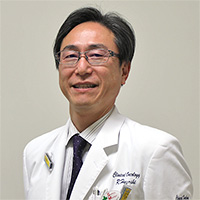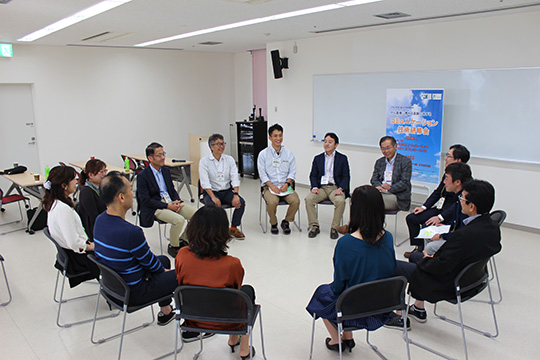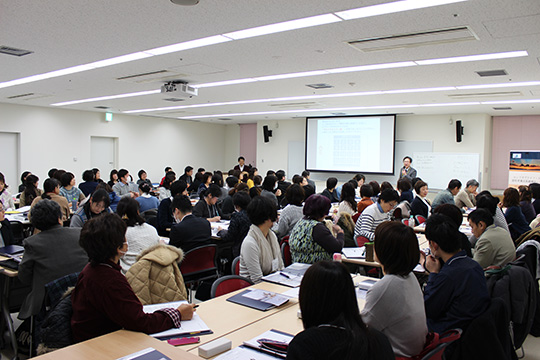To Students and Clinical Doctors-in-Training

The field of clinical oncology explores innovations in standard cancer treatment, with a particular focus on drug therapy; clinical oncologists also work to develop supportive therapies and palliative therapies for cancer patients.
Conventionally, drug therapy for cancer has been administered on a per-organ basis: lung cancer would be treated by a respiratory medicine specialist; stomach cancer would be treated by a gastroenterology specialist; breast cancer chemotherapy would be administered by a breast surgeon, because there’s no physician specializing in breast cancer… and so on.
However, with the increasing numbers of cancer patients in recent years, as well as the diversification of drug therapies, there is a new need for medical oncologists who can develop new drug therapies, provide supportive therapy to ensure the safety of these drug therapies, and handle cancers that cannot be readily treated through conventional paradigms, such as cancer of unknown primary.
What Makes Us Unique
Cancer treatment has conventionally been handled by organ specialists, based on the characteristics of the specific disease. However, as our understanding of the molecular biology of cancer has improved, it has likewise become clear that cancer’s true nature is genomic aberrations within cells, and that the characteristics of cancer are common across different organs. In addition, drugs for various cancers have been developed, and are applied based on genomic aberrations. Because of this, some believe that it is more rational for diagnoses and surgical resections to continue to be performed on a per-organ basis, while drug therapy should be handled by doctors who specialize in anti-cancer drug therapy for all organs.Our department takes this perspective, providing basic cancer drug therapy and side effect management; medical internships teach the essence of these.
Because cancer is a life-threatening disease, the pain it causes is not only physical, but also mental and social. Palliative care is a type of medical care that serves to address the physical and mental pain of cancer patients. At first, palliative medicine consisted of end-of-life hospice care; today, palliative care is provided from a number of perspectives, starting from the time of cancer diagnosis. To do that, we need more specialized knowledge and team medical practice. Our department also operates the Palliative Care Center, which specializes in palliative medicine provided alongside cancer treatment. We recommend that all doctors-in-training train in our department, in order to learn the fundamentals of palliative medicine.
Achievement Objectives
1. To accurately diagnose disease pathology and staging, and to accurately assess patient condition in order to select optimal treatments.
2. To learn to evaluate responses to, diagnose side effects of, and appropriately manage cancer drug therapy, and master supportive therapy in cancer treatment.
3. To develop the communication skills needed to build good doctor-patient relationships and to empathize with patients’ total pain.
4. To master the fundamentals of palliative medicine, and to learn how to smoothly provide team medical care together with the medical staff.
A Message from the Department
Cancer is one of the greatest challenges faced by modern medicine. We believe that engaging in the treatment of cancer, and being involved in the development of these treatments, is incredibly rewarding work. We hope that all doctors-in-training will master the most cutting-edge cancer treatments, and learn to provide palliative medicine based on patients’ requests and preferences.


